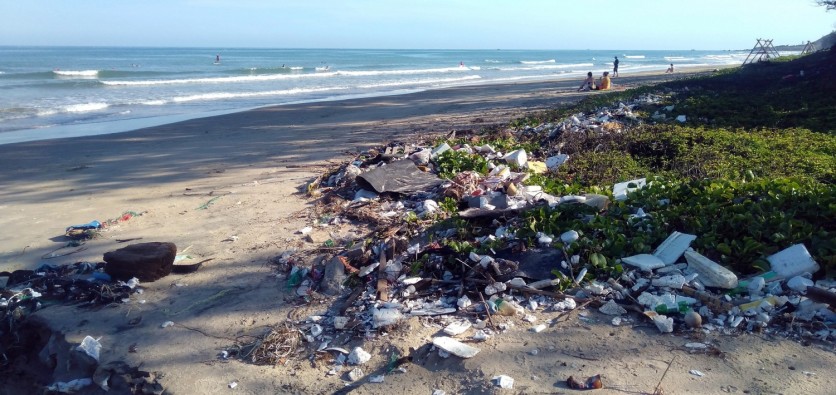A recent study has discovered that plastic pollution in the world's oceans has reached an unprecedented level in the past 15 years, with a need for a legally binding treaty to stop harmful waste, according to a report by AFP.
The accumulation of plastic in the oceans is an ongoing issue globally, and animals may become entangled in larger pieces of plastic, such as fishing nets, or consume microplastics that eventually enter the food chain and may be consumed by humans.
The study found that there are about 170 trillion pieces of plastic, mostly microplastics, on the surface of the world's oceans today, with much of it discarded since 2005.

40-year Study
The researchers warned that the rate of plastic entering the oceans could increase several-fold in the next few decades if it remains unaddressed. To collect data, the researchers took plastic samples from over 11,000 stations around the world and analyzed a 40-year period between 1979 and 2019.
While they found no trends until 1990, there was a fluctuation between 1990 and 2005, after which the samples skyrocketed.
According to Lisa Erdle, a contributing author, the amount of plastic waste in the ocean has increased rapidly since 2005. This increase is due to the rise in plastic production, coupled with the limited number of policies controlling the release of plastic into the ocean.
The sources of plastic pollution in the ocean are numerous and diverse. Fishing gear, such as nets and buoys, are often lost or accidentally dumped in the middle of the ocean, while items like clothing, car tires, and single-use plastics tend to pollute closer to the coast.
These items eventually break down into microplastics, which can look like confetti on the surface of the ocean.
A report jointly produced by Economist Impact and The Nippon Foundation reveals that if current trends continue, plastic use will almost double from 2019 levels in G20 countries by 2050, reaching 451 million tonnes annually.
In contrast, only 2 million tonnes of plastic were produced worldwide in 1950. This highlights the urgent need for policies to control plastic waste and reduce plastic production.
Erdle adds that there is a "lack of recycling" and an abundance of "toxic products and packaging."
Need for a New Treaty
Although plastic waste rates declined between 1990 and 2005, effective policies like the 1988 MARPOL treaty, which ended the discharge of plastics from naval, fishing, and shipping fleets, played a significant role.
However, with the current surge in plastic production, the authors of the study suggest the need for a new treaty to better manage plastic disposal and reduce production and use.
The study also highlights that environmental recovery of plastic has limited merit, so strategies to address plastic pollution must focus on reducing emissions in the first place.
In 2022, 175 nations committed to ending plastic pollution under a legally binding United Nations agreement that could be finalized next year. The agreement includes a global ban on single-use plastics, a "polluter pays" scheme and a tax on new plastic production.
The study, which examined samples from the North and South Atlantic, North and South Pacific, Indian, and Mediterranean oceans, estimated that the total weight of plastic pollution in the ocean is 2.3 million tonnes.
The team's findings were published in the journal PLOS One.
Related Article : Scientists Create A 'Robot Fish' That Eats Microplastics - Will It Solve Plastic Pollution?

![Apple Watch Series 10 [GPS 42mm]](https://d.techtimes.com/en/full/453899/apple-watch-series-10-gps-42mm.jpg?w=184&h=103&f=9fb3c2ea2db928c663d1d2eadbcb3e52)



